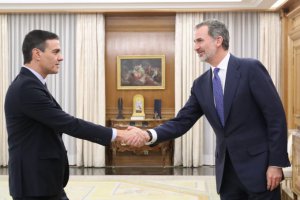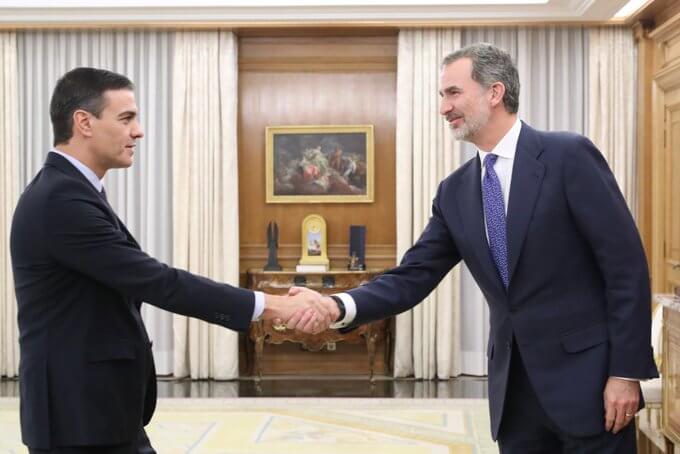Acting Spanish prime minister Pedro Sánchez, the leader of the Socialists (PSOE) party, has been given the go ahead to form a new government by King Felipe VI following on from the 10 November general election – the fourth in four years. But whether Sánchez will actually be able to do so is still uncertain.
The proposal to Sánchez was made public following the monarch’s round of talks with political leaders and announced by the Spanish Congress speaker Meritxell Batet following her own meeting with the king at the Zarzuela Palace.
ALSO READ: Spanish Parliament reconvenes, yet still no government
Pedro Sánchez has announced that he will now be speaking personally with all other political leaders – which will include Catalan president Quim Torra and the Junts per Catalunya (JxCat) party.
Precisely when an investiture debate and vote in the Spanish Congress will take place, however, is unclear, as it also depends upon ongoing negotiations between PSOE officials and members of the Catalan pro-independence Esquerra Republicana (ERC) party.
ALSO READ: ERC reject investiture of Sánchez without agreed negotiation

The PSOE’s 120 seats from the 10 November general election, combined with the 35 won by the left-wing Podemos party – and with whom they have already signed a pre-agreement to form a coalition government – leaves them short of the majority in the 350-seat Spanish Congress. The re-election of Sánchez as prime minister is therefore in the hands of ERC’s 13 MPs, as well as other smaller political groups.
ALSO READ: PSOE and ERC meet for 3rd time – one month after election
The PSOE and ERC have met three times in the past month to seek a deal, but whilst both sides say there has been ‘progression’ in the talks, no conclusion has been reached yet.
‘We see advances in the definition of the necessary tools to channel the political conflict over Catalonia’s future, which we hope to address through mutual respect and recognition,’ read a joint statement after officials met in Barcelona in the third encounter this week.
ALSO READ: Focus: Spain is trapped in political instability. The main reason? Catalonia


